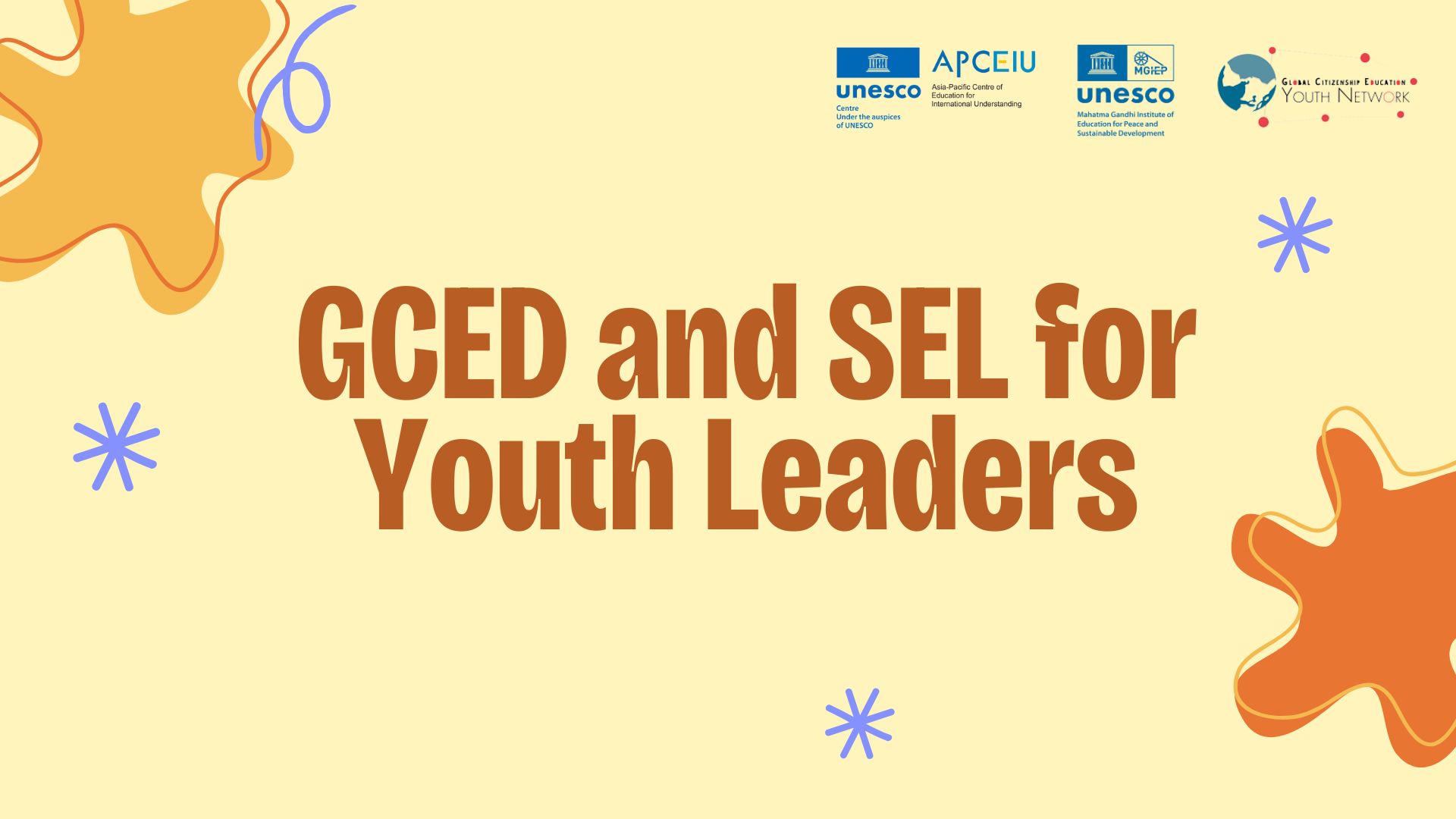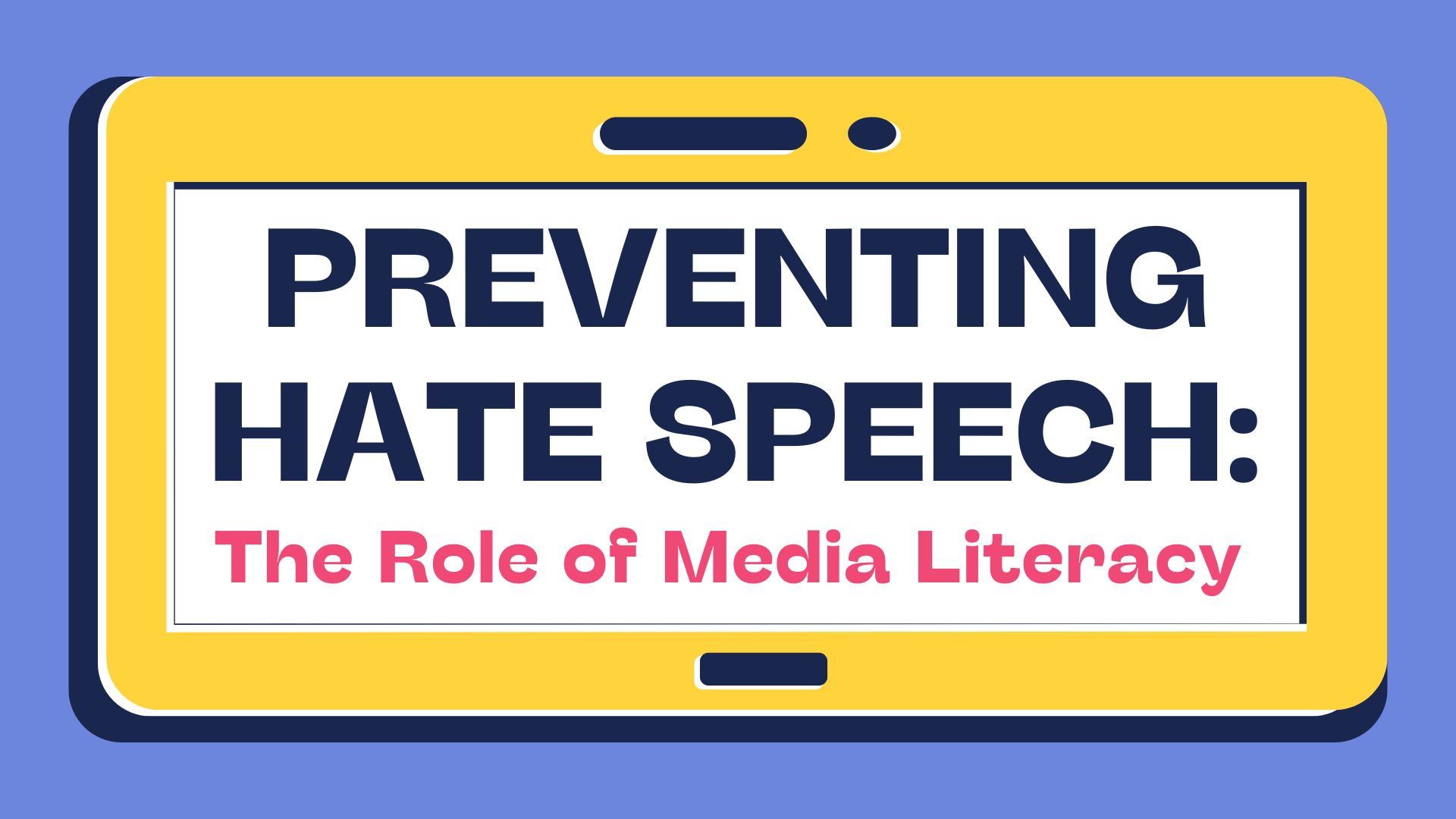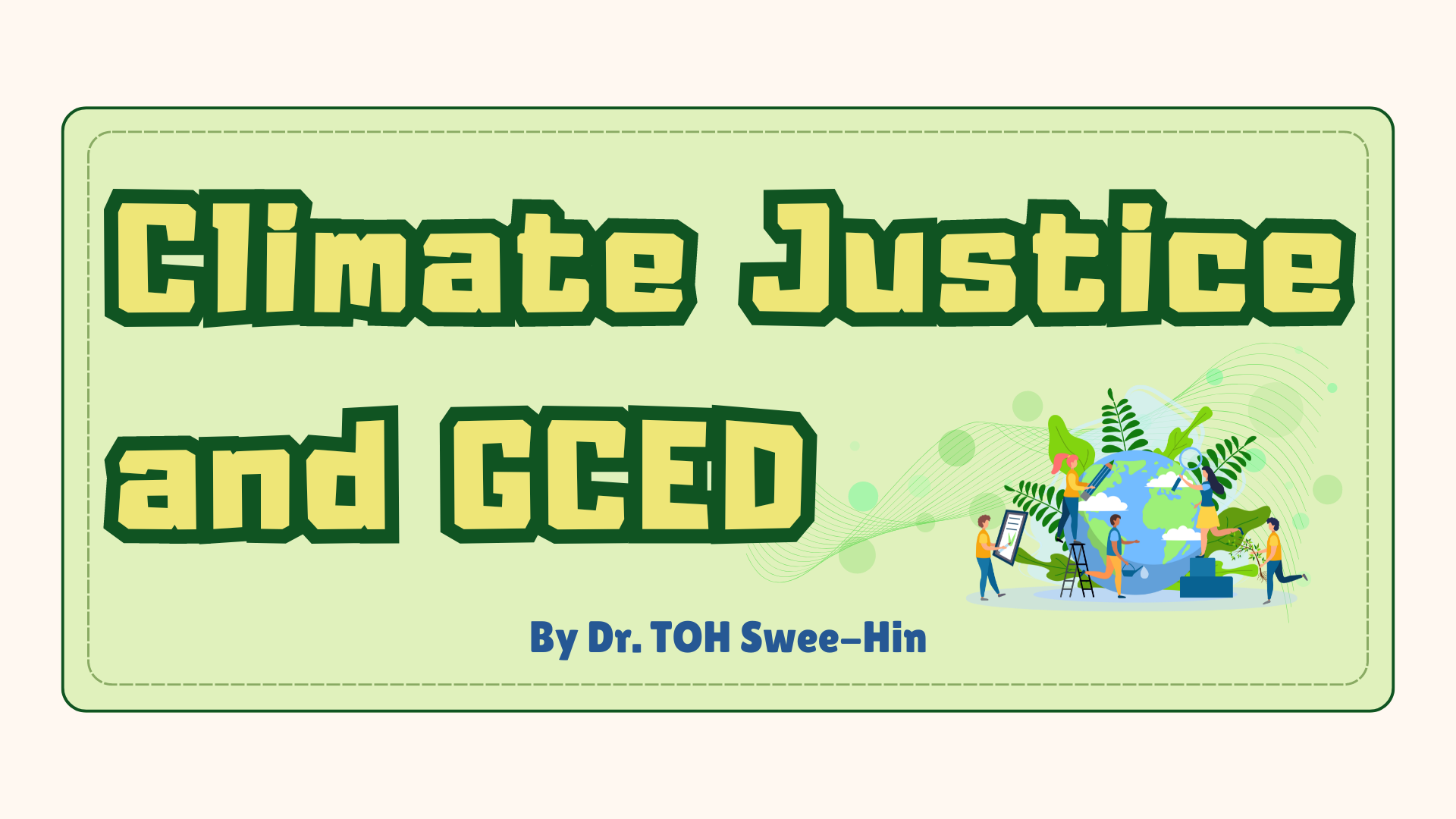Exclusively for Youth
This course serves as a prerequisite for those seeking to engage in Global Citizenship Education (GCED) and Social Emotional Learning (SEL). Through a series of lectures by renowned experts, interviews with scholars and practitioners, and case studies from diverse contexts, learners will develop foundational knowledge and skills essential for understanding and applying GCED and SEL principles. The course aims to explore core concepts, pedagogical approaches, and real-world applications of GCED and SEL at local, national, and global levels. It provides a platform for learners to critically reflect on educational challenges, equity, and inclusivity, fostering a deeper awareness of their roles as educators and global citizens. By the end of this course, learners will be able to: Understand the fundamental principles of GCED and SEL Recognize the importance of social-emotional competencies in fostering inclusive and just societies Prepare for advanced courses in GCED and SEL by building a strong conceptual and practical foundation This course is designed for educators, advocates, and aspiring change-makers who seek to integrate GCED and SEL into their teaching, leadership, or community initiatives. In particular, applicants for 11th Youth Leadership Workshop on GCED should complete this prerequisite course before the Pre-Workshop.Self-pacedApplication 03-03-2025 ~ 04-03-2025
Learning 03-03-2025 ~ 04-03-2025
Certificate Yes
GCED by Themes
Glocal Justice and Peacebuilding
Among individuals, groups, and institutions committed to building a peaceful world, there is a long-standing consensus that there can be “no peace without justice”. Hence, this course seeks to provide a critical understanding of the relationship between conflicts and social and economic justice at local and global levels as well as peacebuilding initiatives to transform such conflicts in both South and North contexts. Identifying structural violence or social and economic inequalities and injustices as one of the major root causes of glocal (global and local) conflicts, it also explores strategies whereby nations and their citizens can live together with justice and compassion to build a culture of peace through personal and social action. Drawing on case studies in diverse regions in the Global South and in part in the Global North, four specific themes or sectors will be critically examined, including paradigms of development and globalization, marginalized rural communities, women and Indigenous Peoples The impact of unjust social structures and relationships at international, national and local levels in catalyzing conflicts will be analyzed. Various exemplars of grassroots peacebuilding initiatives and movements to transform these conflicts towards realities that reflect the values and principles of social and economic justice will also be explored. The course also provides a forum for understanding the roles played by NGOs, other civil society organizations and social movements in the building of a just world community. ※For any inquiries regarding taking the course, please contact GCED Online Campus administrators, gcedonline@unescoapceiu.org.Instructor-ledApplication 03-03-2025 ~ 03-25-2025
Learning 04-10-2025 ~ 05-25-2025
Certificate Yes
GCED by Themes
Your Role in Eliminating Discrimination against Women
The unfortunate reality is that, as of 2024, no country has fully achieved gender equality. However, the good news is that you and I can work together to change this and make gender equality a reality. This course will introduce you to feminist activist approaches to eliminating discrimination against women. While efforts to combat discrimination often begin at the local level, global mechanisms are in place to support governments in fulfilling their commitments to women. You will learn about key United Nations mechanisms, including: • CEDAW (The UN Convention on the Elimination of All Forms of Discrimination Against Women), • Special Procedures, • The Universal Periodic Review, and • The Sustainable Development Goals (SDGs). A core focus of the course will be on Violence Against Women (VAW), which is both a cause and a consequence of gender inequality. • Violence against women, particularly intimate partner violence and sexual violence, is a significant public health crisis and a grave violation of women’s human rights. • According to estimates from the WHO, approximately 1 in 3 women (30%) globally have experienced physical and/or sexual intimate partner violence or non-partner sexual violence in their lifetime. We will examine the various forms and types of VAW and explore two critical topics in greater depth: Women’s Reproductive Rights and Women in Media. *Please take a look at the following dates for the Zoom live sessions during the course:Instructor-ledApplication 02-10-2025 ~ 03-06-2025
Learning 03-17-2025 ~ 04-27-2025
Certificate Yes
GCED by Themes
Preventing Hate Speech: The Role of Media Literacy
What can be done when online hate speeches spread into the physical world? This closed course is designed for educators who want to teach about Media and Information Literacy. It will focus on the spreading of prejudice and stereotypes online and their consequences offline. The workshop will explain the role played by the Internet and the mechanisms of their diffusion on social networks (trends and patterns of online extremism). Using material found online, this course will allow the participants to experiment hands-on the functioning of Internet, define their own posture, and will give them the tools and recommendations to teach about it. In particular, students who want to apply for this course should complete the prerequisite course “Critical Media Literacy” in advance. Module No Title 1 The Challenges of Privacy Online 2 Consequences of Fake News and Conspiracy Theories 3 Online Discrimination and Hate Speech by Extremist Groups 4 The Role of EducationInstructor-ledApplication 07-30-2024 ~ 08-21-2024
Learning 09-02-2024 ~ 10-31-2024
Certificate Yes
GCED by Themes
From the 60s onwards, an awareness grew among governments and citizens globally of an “environmental crisis” due to a wide range of human activities and problems impacting on the environment. There is now universal consensus that “climate change” is one of the most serious and urgent threats facing the survival of humanity. Given GCED’s vision to promote education and action to build a holistic culture of peace that includes human and planetary “development” based on values, principles and strategies of sustainability, the “climate crisis” is hence an indispensable theme in GCED programs. This APCEIU online course seeks to initially provide a critical understanding of the causes and consequences of climate change resulting in the climate crisis that disastrously affects the well-being of humanity and our planet. It also clarifies the alternative paradigms of “sustainable development” that underpins proposed and implemented strategies to address the climate crisis. The role of international policy and administrative institutions to undertake climate action, such as the Conference of the Parties (COP) to implement the UNFCCC, will be highlighted. Drawing on critical perspectives and social movements led especially by grassroots civil society organizations , NGOs and communities, the course also seeks catalyze personal and social action for climate justice in GCED. PRE- or CO-REQUISITE COURSE: GCED101: Introduction to GCEDInstructor-ledApplication 07-26-2024 ~ 08-12-2024
Learning 08-19-2024 ~ 10-08-2024
Certificate Yes
GCED by Themes
AI and Ethical Digital Citizenship
This course begins with an overview of AI’s evolution, clarifying essential terms and distinctions. We delve into AI governance, examining global and local frameworks, policies, and the roles of various organizations.Focusing on ethics, we will address the moral principles guiding AI, strategies for embedding fairness, accountability, and transparency, and analyze case studies of ethical challenges, including human labor costs and environmental concerns. The course also provides guidance on responsible AI use in educational settings, emphasizing ethical decision-making, privacy, consent, and data protection.We tackle the issue of misinformation, exploring AI's role in generating and spreading false information, and teach strategies to identify and combat fake news and deepfakes. Additionally, the course examines the broader societal impacts of AI, including its effects on the economy, employment, and the digital divide.By the end of this course, learners will understand AI's applications, governance, and ethical considerations, and be equipped to make informed, ethical decisions in their professional and personal lives. Become a well-informed digital citizen ready to navigate and shape the future of AI technology.Instructor-ledApplication 07-01-2024 ~ 07-18-2024
Learning 07-22-2024 ~ 09-21-2024
Certificate Yes
- About
- Courses
-
Open Courses
Open to all members of GCED
Online Campus! -
Courses by Registration
A wide range of courses with
specific topics on GCED are
available here!
-
- Resources
-
Special Lectures
Special lectures by speakers and professionals from around the world!
-
GCED in Minutes
Here we introduce a fast, fun, and friendly way of learning GCED!
-
GCED in Practice
Innovative initiatives on GCED in different corners of the world are introduced here!
-
Meet the Global Citizens
Get inspired by the stories of global citizens and get ready to start your own GCED advocacy!
-
Total 34








